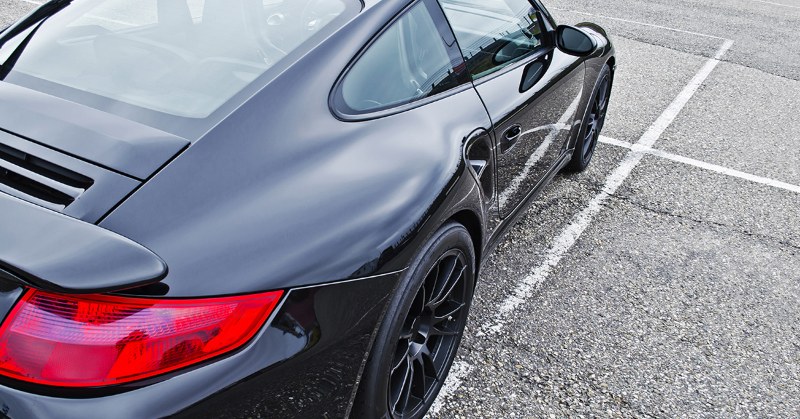Are Porsches Costly to Maintain?

A Porsche is at the top of the wish list of most automotive enthusiasts, however, many are restricted by the costs involved in not only purchasing the vehicle, but maintenance as well.
In this article, we will explore the costs involved in maintaining a Porsche.
Porsche: Sophistication all around
If you look at these cars purely from an engineering point of view, they are stunning example of advanced automotive mechanical engineering. The superior design and build of a Porsche has a specific objective, and that’s to deliver high-end performance.
But what about their reliability? Well, these cars perform well irrespective of climatic conditions. Whether you live in a hot region or a place that witnesses biting cold, your Porsche will deliver an optimal driving experience thanks to its advanced engineering.
Porsche cars undergo rigorous testing in varied climatic conditions and terrain to ensure that they are sturdy and reliable. Such testing involves considerable sophistication which is not always cheap to repair. For example, it is estimated that a Porsche engine rebuild costs around $7,500.
The best Porsche models tend to carry a high price tag, which is driven by their all-round sophistication and market focus. As you would expect, such expensive cars will be costly to maintain.
Whether you are looking for car modifications or standard maintenance, the running costs are high if you buy a Porsche. Repairs can be expensive too. This is particularly true for the following models: 718 Cayman 6-speed manual, 718 Boxster GTS 6-speed manual, 911 Carrera GT3 7-speed automatic, 911 Turbo S 7-speed automatic, and 911 Carrera 4S manual.
Maintaining a Porsche: An expensive affair
The following factors drive up the maintenance and repair costs for a Porsche:
- The higher costs of parts: Take the example of scheduled maintenance. The maintenance shop will sometimes need to replace parts like front discs, radiators, lower arms, oil filters, and alternators. Check the price and you will find that genuine Porsche parts are more expensive than aftermarket parts. In some cases, genuine Porsche parts cost 10-15% more than aftermarket parts. For alternators though, the price difference is even higher. Porsche designs and builds their parts with quality and sophistication in mind, therefore, expect to pay a premium for genuine Porsche parts.
- The higher costs for skilled technicians: Not all maintenance and servicing shops have adequate knowledge to maintain Porsche vehicles. You paid a premium price when you bought a Porsche, and now you can’t take the risk of inexperienced technicians servicing your car. Labor costs for technicians with the experience of servicing a Porsche can be higher.
- As a result, common maintenance activities cost more for Porsche than other non-premium cars. For example, you can expect to pay more for changing the oil, brake fluid, fuel filter, oil filter, air filter, etc.
- You can compare the costs of Porsche parts with aftermarket parts very easily, thanks to guides published by many maintenance shops. How do you know how much more you need to pay for repairs and upgrades of a Porsche? That largely depends on your specific requirements.
Spend smartly to prevent costs spiraling out of control
You certainly need to pay more to maintain a Porsche than a non performance vehicle. However, taking a holistic view would show something more. If you spend the right amount of money at the right time, then you can prevent the costs spiraling out of control. By maintaining a Porsche in the right way, you can avoid large costs to repair it.
You need to do the following for this:
- Maintain your vehicle regularly: Generally speaking, you should service your Porsche every 10,000 miles or a year, whichever comes first. However, the climate in your region matters. Change the engine oil more frequently if you live in a hot region. Also, the model you drive makes a difference. The engines of turbocharged models produce plenty of heat, and you should change the engine oil every 5,000 miles. Consult an experienced hand to get a maintenance schedule tailored to your Porsche.
- Use original Porsche parts: If you plan to reduce your maintenance costs by replacing the original Porsche parts with cheap aftermarket parts, that won’t benefit you in the longer run. Use OEM parts to avoid high repair costs in the future.
- Look for experienced technicians: As we have already explained, take your Porsche to a maintenance shop that has sufficient experience with Porsche’s.
- Consider buying a comprehensive extended warranty: Buying an extended warranty might help you to keep long-term costs down. Check carefully what the warranty covers. Find out if there’s any restriction on the maintenance shops you choose. Remember that extended warranties that cover older Porsche’s with high mileage can cost quite a bit. Avoid extended warranties that claim to cover any vehicle with any mileage. These fall in the category of “offers that are too good to be true”!
BIO
Daniel is an avid car enthusiast, with a growing passion for track racing. Since he was young he has been around performance vehicles and his supercharged love for sports cars has led him to writing for a number of Automotive blogs. He is now sharing his auto knowledge at Euromotorsport Euro Car Upgrades